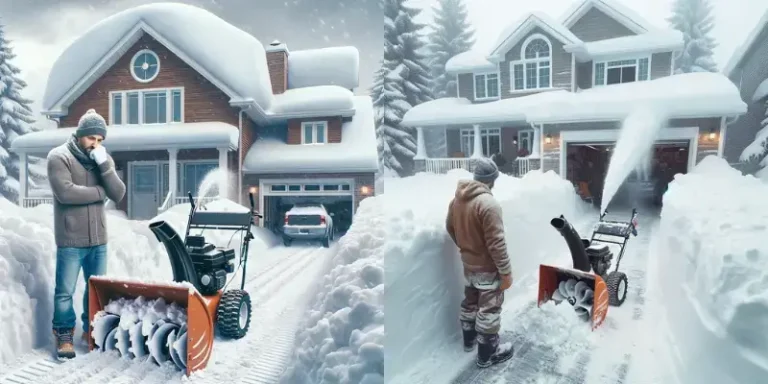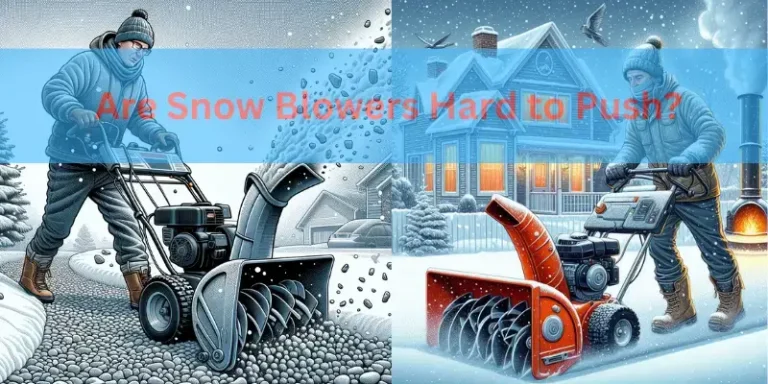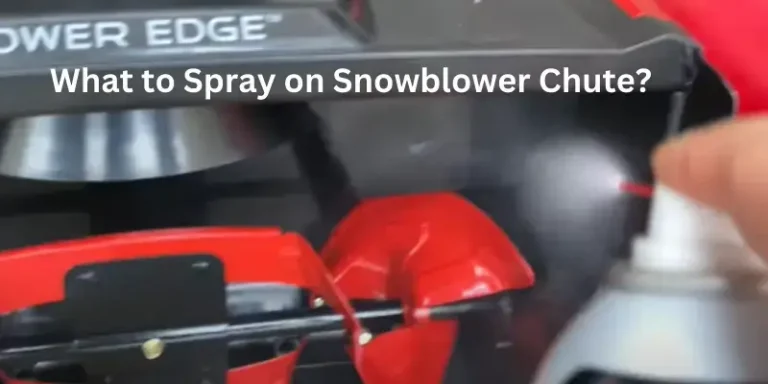Do Snowblowers have Air Filters? Debunking the Myth
As winter is at its peak, everything is covered with a white blanket, driveways and pathways are covered completely with snow. Snowblowers stand at the forefront, homeowners are clearing their driveways to continue their routine life activities.
Mostly, snowblowers are used in winter peak and there are a lot of common problems that arise because of no maintenance in the whole year. Homeowners are always finding a way to maintain these machines for the season and the question that creates curiosity among all the homeowners is “Do Snowblowers have Air Filters?”
Let’s debunk the myth and try to find the facts about snow blowers and how these machines are different from other machines like lawnmowers.
Do Snowblowers Have Air Filters?
To address this curiosity directly: no, snowblowers typically do not have air filters. This may seem surprising, especially when we think about other engine-driven machines like cars or lawnmowers, which rely on air filters. But there’s a rationale behind this design choice.
Why No Air Filters?
Let’s try to find the answer to why Snowblower has No Air Filters. There are many reasons behind this answer:
Snowblowers vs. Dusty Environments
Snowblowers are designed for winter’s unique conditions. In contrast to dusty, dry environments where air filters are essential, winter air is generally crisp and clean, lacking substantial dust particles. This absence of airborne impurities negates the need for air filters in snowblowers.
Handling the Snow Deluge
During operation, snowblowers encounter an overwhelming amount of snow. This constant interaction with snow, rather than dust or debris, makes the presence of an air filter unnecessary. The engines in these machines are thus able to breathe freely without the risk of filters getting clogged.
Winter Operation
Snowblowers are seasonal machines, predominantly used in winter. This limited exposure to potentially contaminant-rich environments further justifies the absence of air filters.
Snow Blower Maintenance Tips
Proper maintenance ensures a long life span and increases the efficiency of working of snowblowers Follow these essential maintenance tips:
Spark Plug Replacement
Regularly inspect and replace the spark plug This ensures an easy start and does not disturb you during your snowblowing activity.
Oil and Gas Monitoring
It’s important to use the correct oil and fuel mix. Also, changing the oil at the onset of each winter season helps in maintaining engine health. Lubrication.
Regular lubrication of moving parts is key. This not only prevents rust but also guarantees smooth operation.
Check for Loose Bolts or Pins
A routine inspection for any loose fittings is necessary. Securing any loose bolts or pins is essential for safety and efficiency.
Remove Clog from Chute
After usage, it’s common for the chute to get clogged. Prompt clearing of snow blockages is vital.
Clean After Each Use
Removing snow buildup and debris after each use is important. Storing the snowblower in a dry place helps to prevent rust and prolongs its life.
FREQUENTLY ASK QUESTIONS (FAQs)
Q: Do snowblowers have air filters?
A: Yes, most snowblowers are equipped with air filters to prevent debris and dirt from entering the engine, ensuring smooth operation and longevity. It is essential to regularly check and clean or replace the air filter according to the manufacturer’s guidelines to maintain the snowblower’s performance.
Q: When should I replace the air filter on my snowblower?
A: The frequency of air filter replacement depends on factors such as usage, environmental conditions, and the manufacturer’s recommendations. Generally, it is advisable to inspect the air filter at least once a year and replace it if it appears clogged, dirty, or damaged.
Q: How do I clean the air filter on my snowblower?
A: To clean the air filter, remove it from the snowblower and gently tap it to dislodge any loose debris. Then, carefully wash the filter in a mild detergent solution, rinse it thoroughly, and allow it to dry completely before reinstalling it. Avoid using compressed air, as it may damage the filter.
Q: What issues can arise from a dirty or clogged air filter in a snowblower?
A: A dirty or clogged air filter can restrict air intake, leading to a rich fuel mixture, poor engine performance, and potential damage to engine components. It may cause the snowblower to run unevenly, lose power, or even stall during operation.
Q: Can a dirty air filter affect the fuel efficiency of a snowblower?
A: Yes, a dirty air filter can disrupt the air-to-fuel ratio, potentially causing the engine to run rich and consume more fuel. Regular maintenance, including cleaning or replacing the air filter, can help optimize fuel efficiency and overall performance of the snowblower.
Q: Is it important to perform regular maintenance service on a snowblower’s air filter?
A: Yes, regular maintenance service for the air filter is crucial in ensuring the proper functioning of the snowblower. It helps prevent potential engine issues, maintains fuel efficiency, and contributes to the longevity of the equipment.
Q: What steps should I take to maintain the air filter of my snowblower?
A: Proper maintenance of the air filter involves regular inspection, cleaning, and replacement as needed. Following the manufacturer’s guidelines for maintenance intervals and procedures is essential to keep the air filter and the snowblower in optimal condition.
Q: Can a snowblower’s air filter become clogged with airborne snow and ice?
A: Yes, particularly in wet and heavy snow conditions, airborne snow and moisture can contribute to clogging the air filter. It is important to check and clean the air filter more frequently in such conditions to prevent potential issues with engine performance.
Q: Are there different types of air filters used in snowblowers?
A: Yes, snowblowers may come with different types of air filters, including foam, paper, or fabric elements. It is important to use the type of air filter recommended by the manufacturer for the specific snowblower model to ensure proper filtration and engine protection.
Q: Can neglecting the air filter maintenance cause long-term damage to the snowblower’s engine?
A: Neglecting air filter maintenance can lead to reduced engine efficiency, increased wear on engine components, and potential long-term damage. Regularly servicing and maintaining the air filter is imperative to preserve the overall health and performance of the snowblower’s engine.
Conclusion
Snowblowers are made specially – they don’t have air filters. This simple design is actually what makes them so good at removing snow. They do their job well without needing the extra part of an air filter. Keeping them in good shape is important though. With regular care, they keep working hard and helping us out during the snowy months. These machines are really helpful but often don’t get much attention. They take on the tough winter weather and make our lives easier.

About Naveed A Hashmi
In my childhood, I used to see my parents while working in the land, for these reasons today I have been serving the same as our own tradition and culture. I thus love to stay in it, because I want to learn something advanced and new so that I may improve my farm’s contour and help others with my experience.







